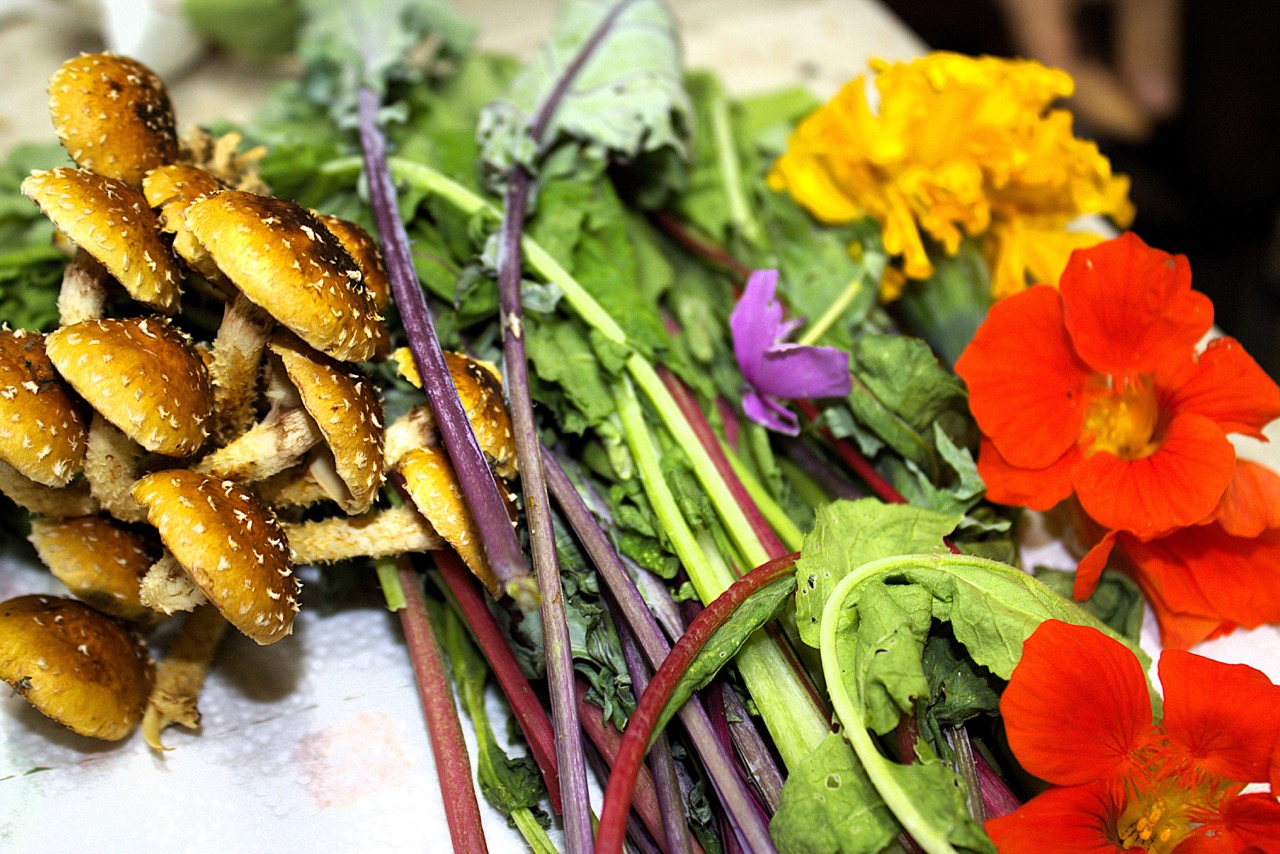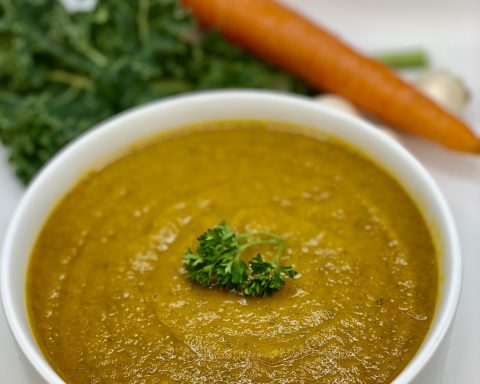Danielle M. Crosier – Vermont Country Magazine.
“In a world filled with a seemingly endless list of environmental pollutants – and diets consisting of highly processed, chemical-filled food – the epidemic of illnesses sweeping our nation will only continue to grow exponentially,” said Pat McLaughlin, researcher, educator, mushroom farmer, and owner of Sole Connection Farm in Arlington.
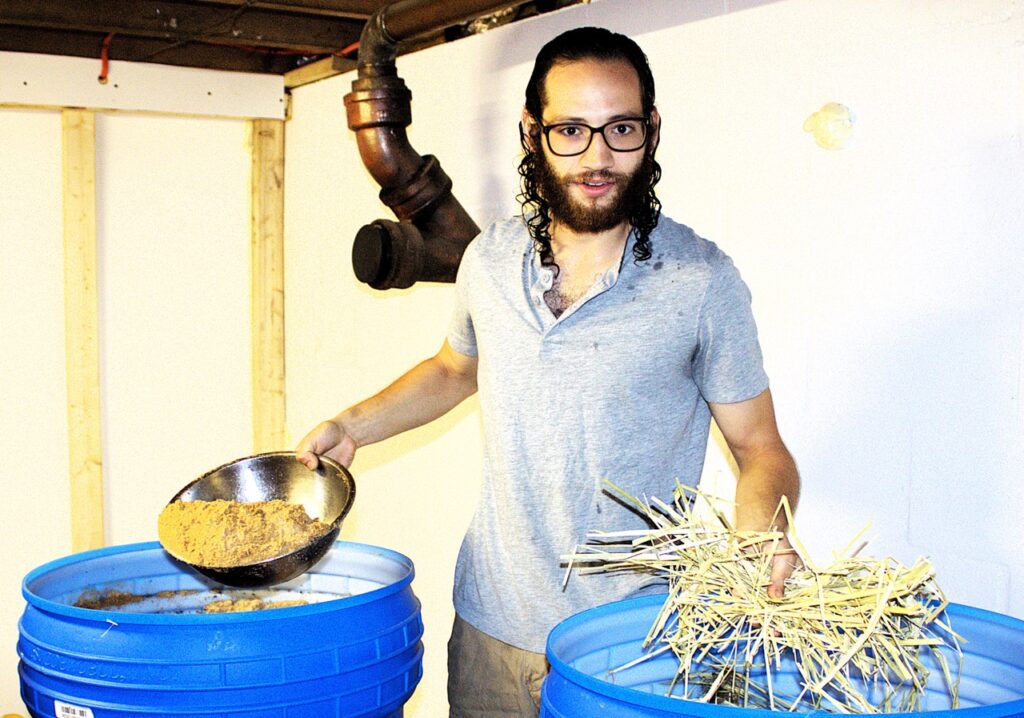
McLaughlin, who lives with Ehlers Danlos Syndrome, has struggled throughout his life with the genetic connective tissue disorder that primarily affects the joints, skin, and blood vessels – but can also lead to neurodegeneration, spinal complications, and other health concerns.
For McLaughlin, the “constant dislocation” of his joints has created situations of neuropathy. Symptoms like weakness, numbness, pain, and tingling, result as the nerves are compressed, stretched, and torn during the dislocation events. It was during his college days that McLaughlin began delving into possible natural remedies and aid – and simply stumbled upon mushrooms.
He began taking Lion’s Mane, which helps to promote nerve growth, and Turkey Tail, an anti-inflammatory and immune booster, “They interact really nicely, so it provided relief,” explained McLaughlin.
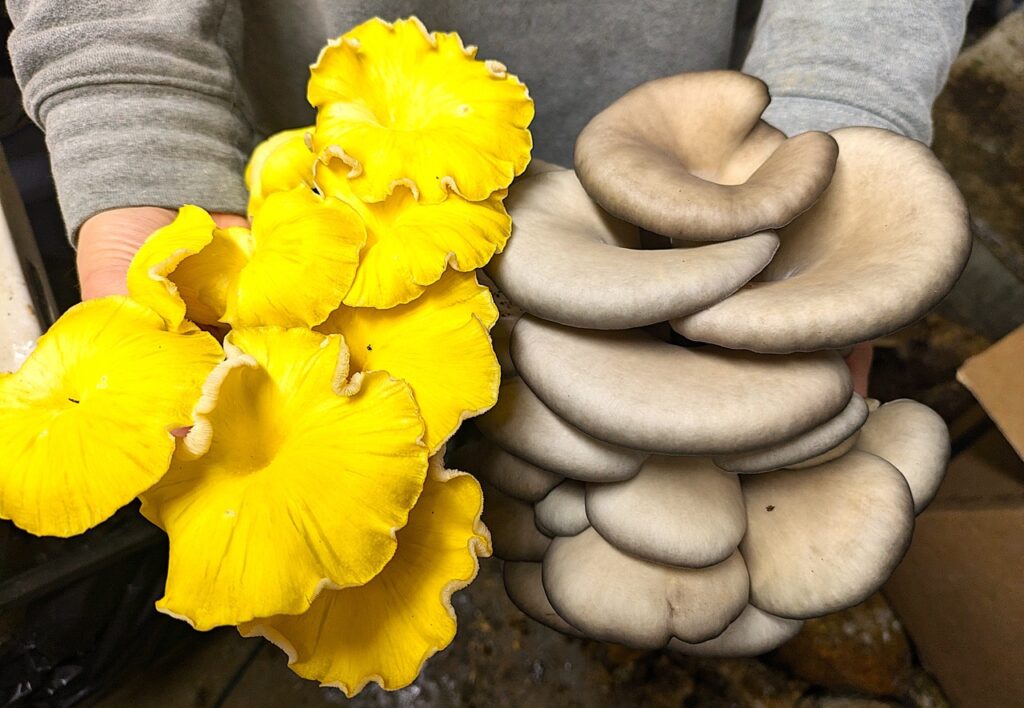
Now, as a producer of up to a dozen different strains of mushrooms at his home-based farm, and with a far deeper understanding of how mushrooms can improve health and wellness, McLaughlin believes that it’s “the choices we make around food – and what we consume – that can dictate the trajectory and overall quality of our lives.”
According to McLaughlin, industrial farming techniques have destroyed the populations of mycorrhizal mushrooms and fungi that allow crops to uptake the vital nutrients and minerals needed for health.
“As a result, even the healthy foods we consume lack the same amount of nutrients they did just 75 years ago,” said McLaughlin. “Finding new sources for minerals, vitamins, and even proteins will be vital to combating our nation’s health crises. Mushrooms could be one of those resources to bolster our impoverished diets – and help us all start moving forward towards a healthier future.”
Mushrooms, categorized as neither plants nor animals, exist in their own kingdom. As for their general health benefits, researchers are only just beginning to understand their benefits, but what is clear is that they are a truly “nutrient dense food.”
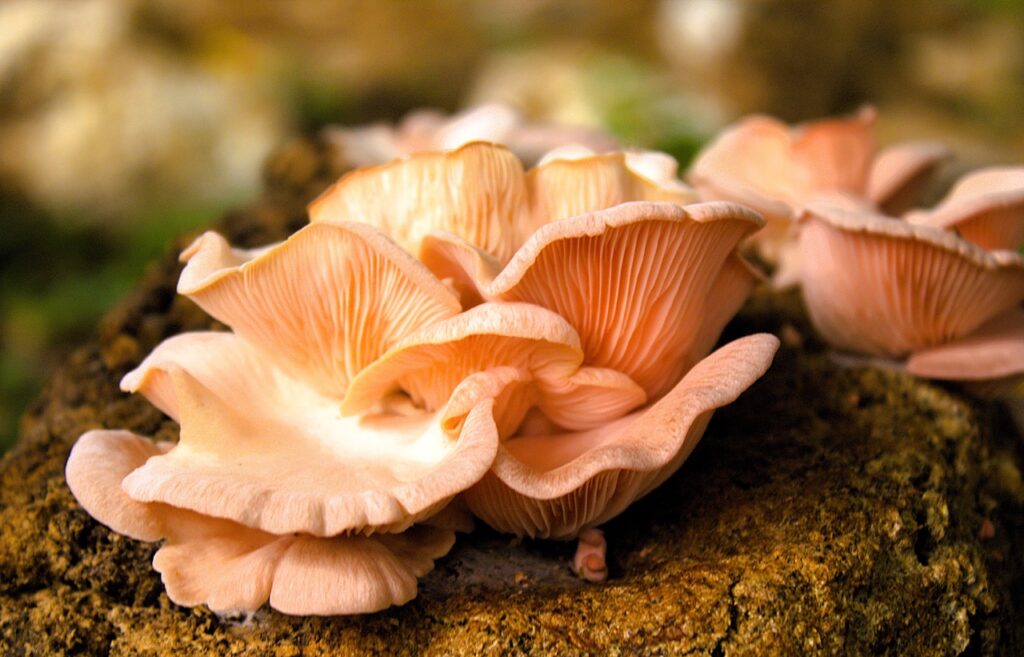
High in the B vitamins of thiamine (B1), for reducing stress and improving immune function; riboflavin (B2), for energy, red blood cell production, the prevention of anemia, the reduction of migraine pain, wound repair, and for the health of skin, hair, and eyes; niacin (B3), for managing type 1 diabetes, promoting joint health, controlling cholesterol and boosting brain function, and for healthy skin; pantothenic acid (B5), for maintaining healthy hormone and cholesterol levels, improving metabolism, heart and digestive health; pyridoxine (B6), for converting food into energy, metabolizing fats and proteins, the formation of hemoglobin for healthy oxygen transfer, and improving immune function and brain development; folate (B9), for preventing birth defects and pregnancy complications, lowering the risk of cardiovascular disease and dementia, helping to treat Alzheimer’s and depression, supporting the nervous system, treating anemia, brain development; and cobalamin (B12), for genetic building blocks and healthy cell metabolism, the production of healthy blood cells and nerve function, energy production, anemia prevention, improved cognitive function and mood, and reduced the risk of macular degeneration.
B vitamins must be obtained from either food sources or supplements, but they cannot be stored in the body. Therefore, they must be obtained on a regular basis, preferably as part of a healthy diet. Mushrooms are also high in minerals such as iron, zinc, selenium, copper, phosphorus, potassium, and calcium – with each bringing incredible health benefits to the human body.
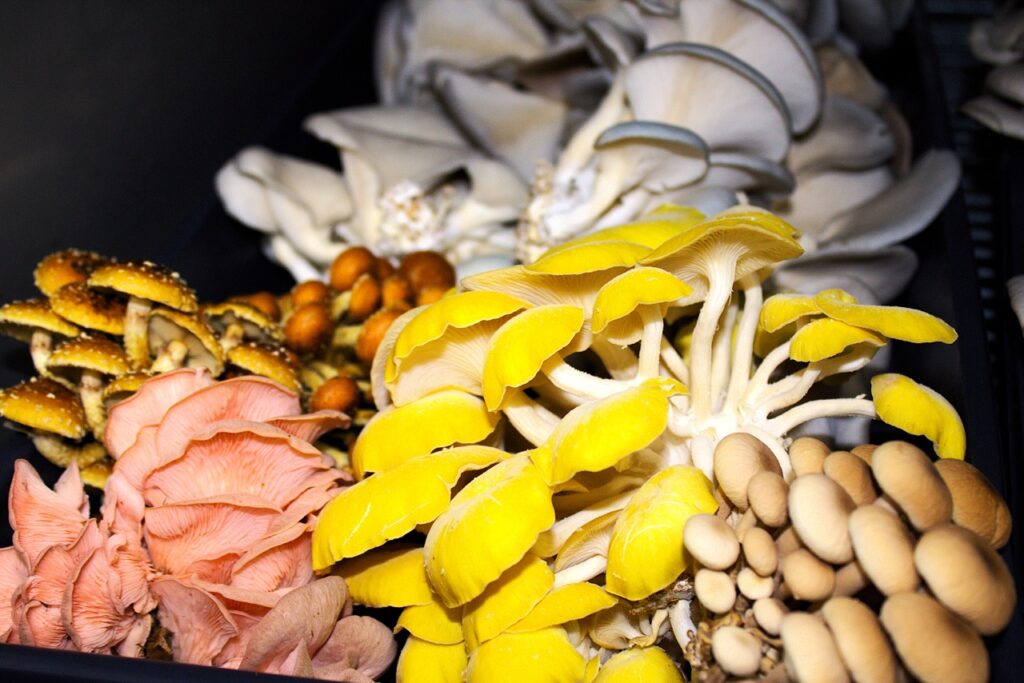
Each mushroom contains its own unique mixture of vitamins and minerals – oysters are higher in all the B vitamins, with the exception of B12. Shiitake is renowned for its elevated B12 levels. Both oyster and shiitake are also high in vitamin C. All mushrooms are low in calories and low in fats, and high in antioxidants, protein, and fiber.
“Across the board mushrooms are high in vitamin D,” explained McLaughlin. “And, we are a nation chronically deficient in vitamin D. Mushrooms are the only produce that contains any substantial form of this vitamin. Vitamin D is necessary for the absorption of calcium by our bones. It regulates our immune system, regulates mood, improves heart function by regulating blood pressure and reducing inflammation, lowers risk of diabetes by improving insulin sensitivity, protects our brains’ neuronal structures and regulates their function. The list of benefits goes on.”
In addition to their use as a nutrient dense food source, mushrooms boast one of the highest concentrations of scientifically backed nutraceuticals. A 2021 study published in the International Journal of Molecular Sciences found that mushrooms “exhibit a broad spectrum of pharmacological activities, including antiallergic, antibacterial, antifungal, anti-inflammatory, antioxidative, antiviral, cytotoxic, immunomodulating, antidepressive, antihyperlipidemic, antidiabetic, digestive, hepatoprotective, neuroprotective, nephroprotective, osteoprotective, and hypotensive activities.”
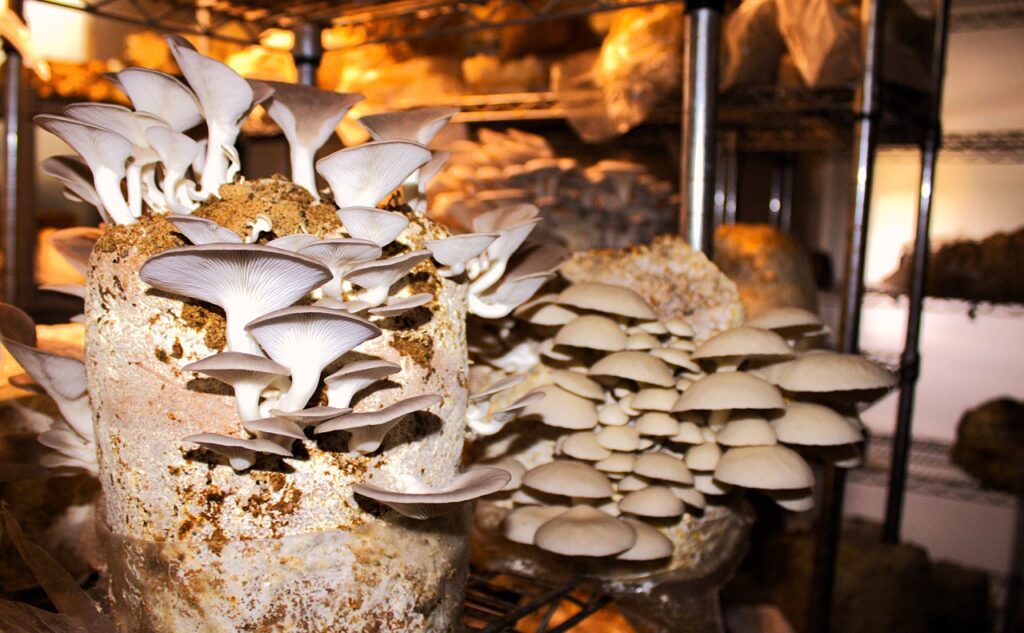
“Mushrooms have been used for thousands of years as medicine for the treatment of a wide variety of ailments and illnesses,” agreed McLaughlin. “Mushrooms contain therapeutic compounds from which numerous medications have been chemically replicated and synthesized for the treatment of fungal, bacterial, and viral infections; cancers of the colon, lungs, breasts; and leukemia. They are not a cure-all for cancer; however, they are without a doubt powerful tools for mitigating the risks and effects of cancerous growths.”
The National Cancer Institute, a division of the National Institutes of Health, is currently assessing the use of Turkey Tail in the treatment of cancer. It is believed that Turkey Tail compounds, known as polysaccharides, act as nonspecific immunomodulators, boosting the body’s natural ability to target and eliminate tumor cells – as well as free radicals.
“And, with mental degradation diseases like Alzheimer’s and dementia on the rise,” McLaughlin added, “the Lion’s mane mushroom – with its nerve growth factor compounds – has been shown in various studies to improve memory, focus, and concentration by protecting the structures of the brain. As a species, we have only begun to scratch the potential of mushrooms to bolster our overall health, but the initial science is proving to be more than promising in the fight to regain our nation’s collective health.”
McLaughlin’s customers typically connect through the Sole Connection Farm website at thesoleconnectionfarm.com, or by introduction at the local Farmer’s Markets. Their orders are available for pick-up at his home-based farm in Arlington. From the customers treating a torn ligament or a back injury to the customers looking for relief from inflammation and joint pain, memory issues, symptoms of diverticulitis, photosensitivity from an advanced Lyme-like illness, and more, McLaughlin feels that “the examples are almost endless” and he urges them to do research on their own.
For those thinking about starting their own personal mushroom growing endeavor at home, McLaughlin welcomes visitors to Sole Connection Farm, simply for the education, “We always encourage anyone who is interested in learning about how mushrooms grow to come by the farm for a tour so we can explain the ins and outs of farming to them, and they can determine if their personal needs outweigh the cost of equipment, and amount of time and dedication it takes to start up themselves.”

Danielle Crosier is a landlocked mermaid who found her way to Vermont by accident. She is a wife and mother, a former technical writer (10 years), former educator (19 years), and glass artisan with a background in marketing and strategic management. Her interests, though, lie mainly in studying and understanding systems and improving the lives of those around her. She also loves spending time with her precious children and their significant others, organizing, learning about social geography, creative endeavors, experimenting with various cuisines, and exploring the world around her.
